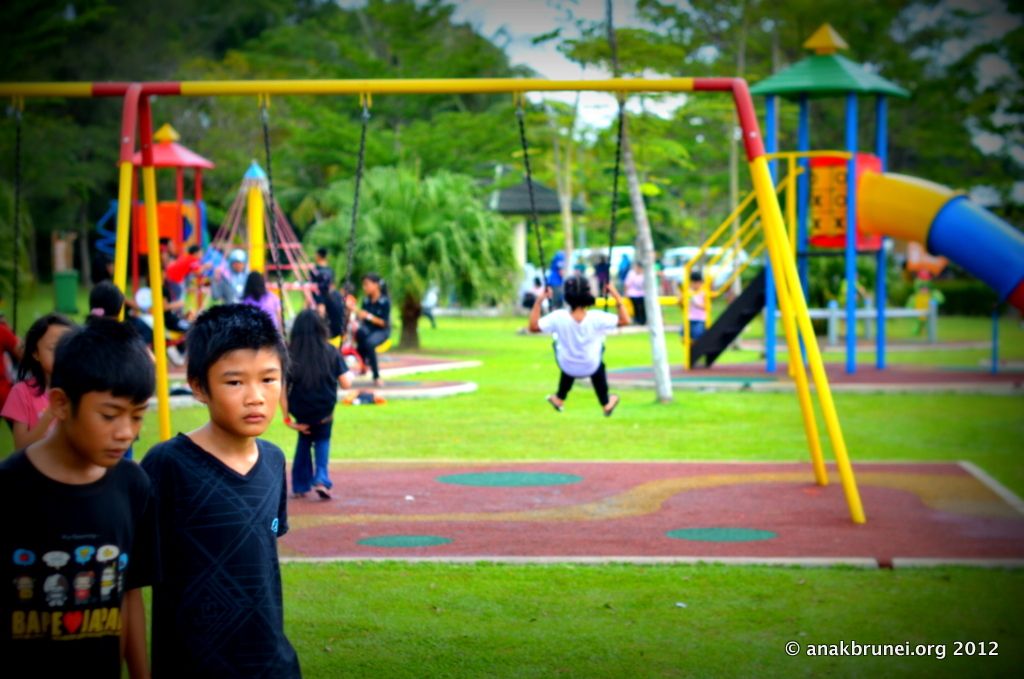Health professionals issue dire Gazawarning – Israel urged to alter direction
The International Community Slams Israel Over Gaza Crisis
The Global community is ramping up pressure on Israel due to the appalling humanitarian situation in the Gaza Strip. Israel's government, under Prime Minister "Bibi" Netanyahu, has persisted with a two-month blockade of aid deliveries, allowing only sporadic humanitarian aid into the Palestinian territory. According to United Nations reports, the entire Gaza population is now at risk of starvation. The United Nations Office for the Coordination of Humanitarian Affairs (OCHA) publicly accuses Israel of using starvation as a weapon and warns of an emerging genocide.
"Gaza: A Humanitarian Disaster"
As the crisis reaches a boiling point, over a thousand healthcare professionals from Germany have written an urgent letter to their government. Obtained exclusively by the Berliner Zeitung, the open letter demands a fundamental shift in Germany's Middle East policy, including an immediate halt to all weapons deliveries to Israel.
Israel's Policies Under Fire: Call for Arms Export Ban29.05.2025
Nine Dead Children in Gaza: A Pediatrician's Tragedy Ausland25.05.2025
The letter was initiated by the medical peace organization IPPNW (International Physicians for the Prevention of Nuclear War). Entitled "Humanitarian Aid Instead of Starvation and Lack of Medical Care - Ceasefire Instead of Arms Deliveries", the letter now boasts 1045 signatures, among them 834 doctors, 78 medical students, 71 psychologists, 26 nurses, and numerous other health professionals.
The letter emphasizes that the blockade, in place since March 2, has led to a humanitarian disaster. The signees quote UNICEF, reporting that all 335,000 children under five in Gaza are at risk of death from acute malnutrition. "Many parts of the civilian population have no access to supplies. There is no food, people in Gaza are starving. Parents are forced to cook grass and leaves to feed their children somehow," the signees assert.
Medical Facilities in Gaza Barely Exist
The medical infrastructure of the Palestinian enclave is on the brink of collapse. Hospitals and medical personnel have repeatedly been targeted by Israel, while Palestinian healthcare workers are regularly taken into so-called administrative detention without charge. "These attacks are clear violations of international humanitarian law and the Geneva Conventions, which explicitly guarantee the protection of medical personnel and facilities in armed conflicts and wars worldwide," the open letter states.
The Israeli government's objective - a complete and permanent occupation of the Gaza Strip and the "evacuation" of the civilian population - not only threatens the lives of Palestinians but also endangers Israeli lives. This approach fuels escalation and could create long-lasting consequences for decades, according to the signees.
Gaza War: Germany Isolating Itself Internationally with Israel Policy21.05.2025
The Limits of Trump's Support for Netanyahu - Merz Continues Baerbock's Course Politics12.05.2025
The letter focuses political blame on the federal government: "Are you standing by this Israeli government that is betting on war, occupation, and land grab, or by the human rights, the Palestinian civilian population, and the hundreds of thousands of Israelis who have been demonstrating for a lasting peace for months?" Those advocating for peace and security for Israelis and Palestinians must act now.
Stopping arms deliveries to Israel demanded
The open letter insists the federal government immediately halt all arms deliveries to Israel to prevent further bloodshed. Furthermore, Germany should exert significant political pressure on the Israeli government to end the illegal blockade of the Gaza Strip and ensure unrestricted access for food and humanitarian aid. This also encompasses supporting the UN relief agency UNRWA, which plays a vital role in aiding the civilian population. The signees of the letter also demand a clear stance in favor of an immediate and lasting ceasefire, initially in the form of a return to the ceasefire agreed in January.
Concurrently, they insist Germany respects decisions made by the International Court of Justice and the International Criminal Court concerning the situation in Palestine and Gaza. Lastly, they demand enhanced medical support, such as the treatment of severely injured, chronically ill, or cancer-stricken children from the Gaza Strip in German hospitals.
"For Germany to Take Action"
Such measures would not only protect the Palestinian civilian population but also increase pressure on the Israeli government to return to negotiation tables. The violence in October 2023, instigated by Hamas, has caused collective trauma within the Israeli population, while the massive destruction of the Gaza Strip, causing approximately 60,000 Palestinians to die, is a deep trauma for the Palestinian side. "Continuing the violence will not resolve this conflict and will not alleviate the traumas," the signees caution.
"Although Chancellor Merz has now expressed caution in criticizing Netanyahu's military offensive in Gaza, the government still refuses to decisively stop arms exports to Israel. The EU is debating a review of the association agreement with Israel, and Germany is even voting against it without even checking if Israel is adhering to the agreement," criticizes Uwe Trieschmann to the Berliner Zeitung. "Our letter is to increase the pressure on the federal government so that Germany finally takes action regarding the humanitarian disaster in Gaza," affirms the IPPNW board member.
Enrichment Data:
The situation in Gaza continues to garner international attention, with increasing criticism against Israel for its actions. Here are key developments:
- UN Actions: Despite the dire humanitarian situation in Gaza, the UN Security Council has been unable to pass a resolution due to the United States veto, which has come under fire from human rights groups for enabling Israel's restrictions to continue[1].
- EU Response: Countries within the EU, including France, the Netherlands, Sweden, the UK, have been vocal in criticizing Israel's actions in Gaza[2]. The EU is reviewing Israel's compliance with human rights clauses, which could lead to severe consequences like suspending preferential trading privileges[2].
- Global Response: Many countries are expressing concern and exerting pressure on Israel to end the blockade and ceasefire negotiations[2].
- Aid Distribution: Despite the challenges, efforts continue to provide aid and support to those in Gaza, with measures in place to ensure aid distribution adheres to standards of accountability and dignity[4].
- Ceasefire Prospects: The prospects of a ceasefire remain uncertain, with much depending on external pressure, particularly from the United States[2].
- The health and well-being of the Gaza population are at serious risk due to the ongoing crisis.
- Science plays a crucial role in understanding and addressing the medical-conditions and chronic-diseases in Gaza.
- Sleep is a fundamental need that many Gaza residents are struggling to achieve due to the persistent stress and anxiety brought on by the crisis.
- Workplace-wellness programs become increasingly necessary for Israeli workplace environments, as they may help mitigate the emotional toll that the crisis has on employees.
- Cancer cases in Gaza have been on the rise due to the inadequate access to early detection and treatment facilities, emphasizing the importance of donating to cancer research and therapies-and-treatments for these afflicted individuals.
- Respiratory-conditions are a widespread issue, as the polluted air caused by the destruction in Gaza worsens existing respiratory problems for susceptible populations.
- Digestive-health issues are worsening in Gaza, as malnutrition and food scarcity have become common occurrences, further highlighting the need for unrestricted access to food and humanitarian aid.
- Eye-health and hearing are vulnerable in Gaza, as both are crucial elements for receiving essential health-and-wellness information, particularly amid crises.
- Fitness-and-exercise can also serve as therapeutic interventions for treating numerous medical-conditions and chronic-diseases, such as respiratory-conditions, digestive-health issues, and mental-health disorders.
- Sexual-health services are crucial for women's-health, as access to services ensures proper family planning and disease prevention, especially amid incidents of migration or war-and-conflicts.
- Access to autoinmune-disorders diagnosis and treatment is essential for maintaining overall health in Gaza, especially during crises, when such disorders can exacerbate the symptoms of other medical-conditions.
- Mental-health services are increasingly necessary to help individuals cope with the trauma caused by living in a crisis-ridden area like Gaza.
- Men's-health is often overlooked, yet crucial for understanding and addressing unique health issues like cardiovascular-health, prostate-cancer, and depression, which can impact the overall well-being of men in Gaza.
- Skin-care is vital for maintaining the overall health of the subsequent generations in Gaza, as skin-conditions can lead to more severe health complications, such as infections, and affect daily life.
- Nutrition plays a significant role in preventing and managing many medical-conditions, chronic-diseases, and eye-health issues, particularly amid food scarcity, as seen in the Gaza crisis.
- Aging populations in Gaza face unique health challenges, as the stress from living in a crisis-ridden environment can impact their physical and mental well-being, necessitating specialized care and rehabilitation services.
- War-and-conflicts often have long-lasting impacts on the health of communities, including cases of neurological-disorders and skin-conditions caused by exposure to chemicals or environmental factors, both of which require specialized care and attention to manage.
- Policy-and-legislation play a significant role in shaping the overall health landscape for communities in crisis, including those in Gaza, where enforcement of legislation can help alleviate suffering and provide access to necessary resources.
- Preventing accidents such as car-accidents or fires is crucial for ensuring the safety and health of communities like Gaza, where a lack of infrastructure or resources can exacerbate the consequences of such incidents.








